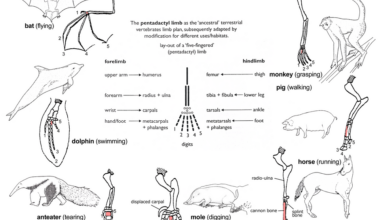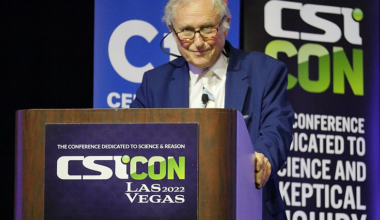The Antisemitism Awareness Act, if passed in its current form, will be a blatant breach of the First Amendment to the Constitution of the United States of America. The First Amendment has not only been the legal safeguard to free speech in the US for over two centuries, but it also remains an oft-cited benchmark for progressive legislation around the world.
The bill seeking to expand the definition of antisemitism, and implement it in education and policymaking in the US, was passed 320-91 during the 118th Congress last year, and is currently in the Senate awaiting approval. If passed, it would make it legally binding on American institutions to incorporate the International Holocaust Remembrance Alliance’s (IHRA) working definition of antisemitism as part of protection against discrimination under the Civil Rights Act of 1964.
Among a long list of contemporary expressions of antisemitism, the IHRA lists various examples targeting the state of Israel. As per IHRA’s definition, criticism of Israel that is not ‘similar to that leveled against any other country’ would be antisemitic. In brief, the Antisemitism Awareness Act could create a legal framework whereby American citizens are allowed to dub their country a racist entity or call for its demise, but would be criminalised for expressing the same about Israel.
While antisemitism has indeed risen in the US amidst the ongoing war in Gaza, the Civil Rights Act protects all communities against institutionalised discrimination, including the Jewish population in America. There are well-grounded fears that the Antisemitism Awareness Act is intended to suppress dissent against the US’s support for Israel, with the Donald Trump regime especially weaponising antisemitism to crack down on certain freedoms, especially targeting educational institutions. The outlawing of critique of an allied state, often found in penal codes of totalitarian or quasi-democratic countries, would be the curtain call on free speech in America.
The paradox within IHRA’s working definition is evident when it lists Jewish accountability for Israel as antisemitic while simultaneously deeming the application of double standards towards Israel as an attack on Jews. If Jews as a whole should not be linked to Israel, then logically, Israel as a state should also not be deemed representative of Jews as a whole. It is, in fact, precisely this conflation of Jews and Israel which is the root of the animosity against both around the world, including in the West. It can even be argued that antisemitism today is actually a misnomer, and that a more accurate label for this widespread antagonism would be ‘Judeophobia’, since most of the hostility targets the religious identity of Jews rather than their ethnicity—especially in the Muslim world, with Arabs being Semites themselves.
It is also ironic that American censorship of condemnations of Israel comes at a time when the state enjoys more authority than it ever has. Not only is Israel today ruled by arguably the most assertive and right-wing regime in its history, but it is no longer surrounded by states aiming for its destruction; rather, Jordan militarily safeguards it, and Egypt abets its operations in Gaza. Other Arab states are queuing up to join the Saudi Arabia-led normalisation of relations with Israel following the 2020 Abraham Accords, having in recent years effectively formed a Sunni Arab-Israeli alliance against Iran. Israel no longer faces an existential threat from regional powers; it now faces hollow Islamist rallying cries coming largely from beyond the Arab world. Even Gazans are rising up against Hamas.
While anti-Jewish bigotry does indeed motivate much of the singling out of Israel, all expressions need to be measured by their contents and not the biases of those expressing them, especially in secular democracies. Hypocrisy and double standards aren’t outlawed by the US Constitution, and it would in fact be the Antisemitism Awareness Act that would inevitably codify these—barring an unlikely, nay impossible, application of the same legislation to all communities.
Would lawmakers, for instance, be willing to similarly conflate critiques of India with anti-Hindu bigotry, which is also growing in the US and was cited by California’s Civil Rights Department as the second-most prevalent form of religion-based hate incidents following those targeting Jews? What about criticism of the officially sanctioned Iranian regime—should that be conflated with the marginalisation of Shia Muslims, even within the broader American Muslim community, as exemplified by the recent Albuquerque killings? If Jews are to be considered an ethnic group, then there would be even more communities in America that could stake a claim to being discriminated against when their countries of origin are targeted, not least the Russians. Should criticising the invasion of Ukraine be seen as an act of anti-Russian bigotry?
Indeed, just as many have cloaked anti-Jewish antagonism in the more palatable language of anti-Zionism, the IHRA conflates Zionism with Jewishness: the working definition considers the denial of ‘the Jewish people their right to self-determination’ as an expression of antisemitism. However, there are perfectly rational reasons to criticise the idea of a state being founded on the alleged promise of a deity to a particular people, even more so amidst the expansion of Israeli settlements and its correlated violence, and there are plenty of non-bigoted, anti-Zionist critics of Israel, including Jewish ones.
Even so, the right to free speech does not apply only to rational, reasonable, or acceptable expression. In principle, the right to free speech is also there to protect what might be deemed as irrational, unreasonable, or unacceptable—i.e. expressions that might receive backlash. There are numerous examples from US history where inflammatory speech has been protected under the First Amendment, including Jewish lawyers protecting the free speech rights of Nazis against Holocaust survivors. As I have argued elsewhere, including in the Israeli newspaper Haaretz, Holocaust denial should be protected by the right to free speech. Indeed, it is not criminalised in the US but would be if the Antisemitism Awareness Act is passed.
The fact that the Act is a political tool, rather than an attempt to safeguard a community, is evident when one realises that antisemitism rooted in religious doctrines would still be protected under the constitutional right to freedom of religion. Senator Bill Cassidy of Louisiana, for example, in a proposed amendment to the act, said that ‘Nothing in this Act shall be construed to diminish or infringe upon… the free exercise of religion’. While Senator Cassidy likely wants to protect the expression of conservative Christian beliefs, the amendment is just as applicable to the Judeophobia codified in Islamic scriptures. In a nutshell, the Act would still allow Christians to quote the Gospels to claim that Jews killed Jesus and Muslims to cite the hadiths to advocate violence against Jews, but clamp down on university courses dissecting American foreign policy on Israel.
The reason many marginalised communities, including Jews, continue to find refuge in the US is because of the country’s codification of equal-opportunity legislation and upholding of secular democratic values, of which freedom of expression is a founding principle. Outlawing offensive speech on the pretext of safeguarding one community will pave the way to apply the same to other communities, once the power dynamics shift. Far from protecting the Jewish community, the Antisemitism Awareness Act would be an enactment of centuries-old antisemitic tropes by illustrating exceptionalism for the Jews in the power corridors of the US. It would also be a betrayal of the US’s constitutional commitment to secular ideals, free speech most of all.
Related reading
An Islamic (mis)education about Israel, by Hina Husain
Is the Israel-Palestine conflict fundamentally a nationalist, not a religious, war? by Ralph Leonard
Young, radical and morally confused, by Gerfried Ambrosch
Israel in Gaza: Humanity’s Canary in a Coal Mine? by Brian Victoria
US Election 2024: Yet Another Farcical and Costly Contest, by Zwan Mahmod
Israel’s war on Gaza is a war on the Palestinian people, by Zwan Mahmod
US Election 2024: On ‘Lesser Evilism’, by Ralph Leonard
Confronting identity politics, a breeding ground for division and dehumanisation, by Maryam Namazie
‘F*** it, think freely!’ Interview with Brian Cox, by Daniel James Sharp
Britain’s liberal imam: Interview with Taj Hargey, by Emma Park









Your email address will not be published. Comments are subject to our Community Guidelines. Required fields are marked *
Donate